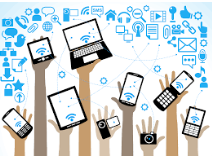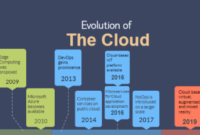Technology has profoundly transformed the world, influencing nearly every aspect of our lives. From the invention of basic tools to the complex digital systems of today, technology has driven human progress and reshaped societies. This article explores the evolution of technology, its current impact, and what the future might hold.
Historical Evolution of Technology
Daftar Isi Artikel
The Dawn of Technology
The story of technology begins in the distant past with simple tools and innovations. Early humans crafted stone tools for hunting and gathering, marking the beginning of technological development. The invention of the wheel around 3500 BCE was another pivotal moment, revolutionizing transportation and enabling complex trade and exploration.
The agricultural revolution around 10,000 BCE further exemplified technological progress. The development of farming techniques, including irrigation and plowing, allowed societies to move from nomadic lifestyles to settled communities. This shift led to the rise of civilizations and the creation of complex societies.
The Industrial Revolution
The 18th and 19th centuries brought about the Industrial Revolution, a period of rapid technological advancement that dramatically changed production and industry. Key innovations included the steam engine, which powered locomotives and ships, and mechanized textile production, which revolutionized the manufacturing of clothing.
The Industrial Revolution also saw the development of communication technologies such as the telegraph and telephone. These inventions revolutionized long-distance communication, making it easier to share information and conduct business across vast distances.
The Digital Age
The 20th century ushered in the Digital Age, marked by the advent of computers and the internet. Early computers were large, expensive machines used primarily by governments and research institutions. However, the development of microprocessors in the 1970s led to the creation of personal computers, making technology accessible to the general public.
The rise of the internet in the 1990s transformed the way we access information and communicate. Email, social media, and online services have become integral to modern life, altering how we interact, work, and entertain ourselves. The proliferation of smartphones and tablets further accelerated this digital transformation, placing powerful computing devices in the hands of billions of people.
Current Impact of Technology
Changing Communication
Technology has revolutionized communication, making it faster and more accessible. Social media platforms like Facebook, Twitter, and Instagram have redefined how people connect and share information. These platforms enable real-time communication and the exchange of ideas on a global scale.
Video conferencing tools such as Zoom and Microsoft Teams have become essential for remote work and virtual meetings, particularly during the COVID-19 pandemic. These tools have facilitated remote collaboration, allowing people to work and interact from anywhere in the world.
Transforming Industries
Various industries have been transformed by technological advancements. In healthcare, technology has led to the development of advanced diagnostic tools, telemedicine, and personalized medicine. Wearable devices like fitness trackers and smartwatches provide real-time health monitoring, enabling individuals to manage their well-being more effectively.
In the financial sector, technology has revolutionized banking and investment through online platforms and mobile apps. Fintech innovations such as blockchain and cryptocurrencies are reshaping the financial landscape, offering new ways to conduct transactions and manage assets.
The entertainment industry has also been transformed by technology. Streaming services like Netflix and Spotify have changed how people consume media, offering on-demand access to movies, TV shows, and music. Virtual reality (VR) and augmented reality (AR) technologies are creating immersive experiences in gaming and entertainment.
Enhancing Daily Life
Technology has also enhanced everyday life through smart home devices and automation. Smart thermostats, lighting systems, and security cameras allow for greater control and convenience in managing household environments. Voice-activated assistants like Amazon’s Alexa and Apple’s Siri enable hands-free control of various devices and services.
Moreover, advancements in transportation technology, such as electric vehicles (EVs) and autonomous driving systems, are paving the way for more sustainable and efficient modes of travel. These innovations aim to reduce environmental impact and improve safety on the roads.
Future Trends and Challenges
Emerging Technologies
Looking ahead, several emerging technologies hold the potential to shape the future. Artificial intelligence (AI) and machine learning are at the forefront of technological innovation. AI systems are increasingly capable of performing complex tasks, from natural language processing to autonomous decision-making. These technologies promise to revolutionize fields such as healthcare, finance, and logistics.
Quantum computing is another exciting development with the potential to solve problems that are currently beyond the reach of classical computers. Quantum computers could lead to breakthroughs in areas such as cryptography, drug discovery, and materials science.
Ethical Considerations
As technology continues to advance, ethical considerations become increasingly important. Issues related to privacy, data security, and the ethical use of AI are critical areas of concern. The collection and use of personal data by tech companies raise questions about consent and privacy, necessitating stronger regulations and safeguards.
The impact of automation and AI on employment is also a significant concern. While technology can create new opportunities, it may also displace jobs and require workers to adapt to new roles. Addressing these challenges involves ensuring that technological advancements are balanced with policies that support workers and promote inclusive growth.
Digital Divide
The digital divide, or the gap between those who have access to technology and those who do not, remains a pressing issue. Access to technology and the internet varies widely across different regions and socioeconomic groups. Bridging this divide is crucial for ensuring that the benefits of technology are accessible to all and that no one is left behind in the digital age.
Conclusion
Technology has been a driving force behind human progress, transforming every aspect of our lives from ancient times to the present day. The evolution of technology from basic tools to advanced digital systems has reshaped societies, industries, and daily life. As we look to the future, emerging technologies offer exciting possibilities, but they also present challenges that require careful consideration.
The continued development of technology promises to bring new opportunities and innovations, but it is essential to address ethical and societal issues to ensure that technological advancements contribute positively to humanity. As we navigate this ever-changing landscape, the focus must remain on harnessing technology’s potential while promoting inclusivity, privacy, and ethical use.




